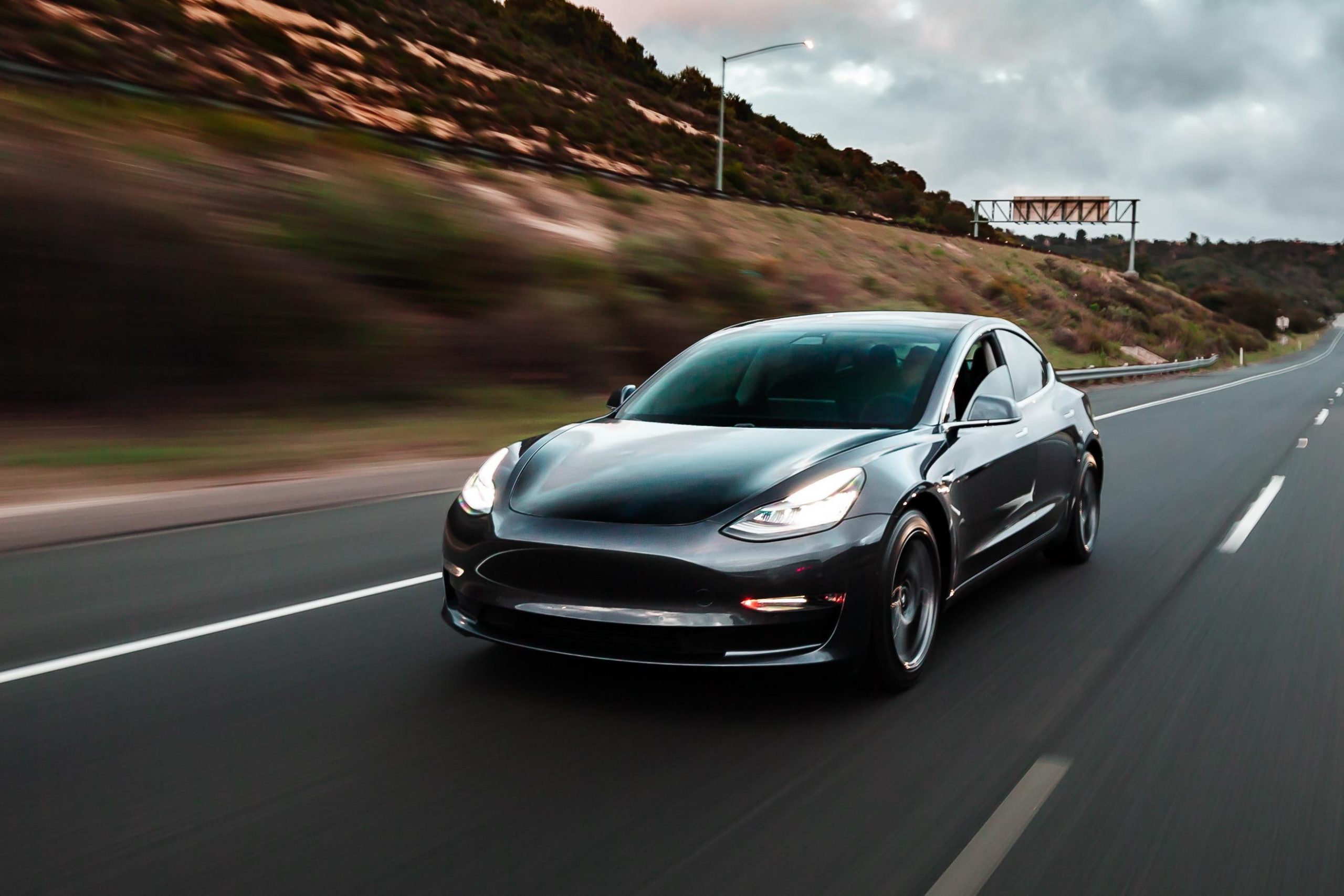
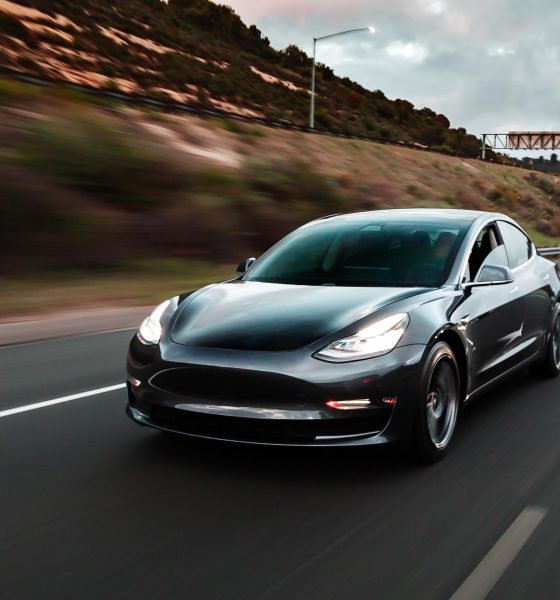
News
‘Tesla Killers’ are like Bigfoot: They don’t exist and they never will
The term “Tesla Killer” should be retired for the rest of time. For years, automakers across the world have released their introductory electric cars into the quickly growing EV sector. With plans written out and cool, sporty photographs and renders of the “next big thing” in the EV sector being released by some of the world’s largest and oldest car company’s, many media outlets, including this one, have referred to some cars as “Tesla Killers” because that is what automakers are trying to do: knock Tesla off of its pedestal and try to derail some of the momentum that Elon Musk’s company has gained through the past several years.
The problem is this: These cars that are always coined as “Tesla Killers” never pan out to what they’re supposed to be. They’re all hype and relatively no real threat to Tesla or any of its vehicles. In all honesty, “Tesla Killers” are like Bigfoot. You always hear about them, but you never see them, and in the back of your mind, you think that it could be real, but more than likely, it isn’t.
I will admit, there are cars out there that have legitimate potential to derail some of Tesla’s momentum. I think the Lucid Air could be a great competitor to the Model S, and I think Rivian’s R1T could be a great option for potential Cybertruck owners. Some great cars are coming to the market, but none of them are worthy of being deemed a “Tesla Killer.”
This is a preview from our weekly newsletter. Each week I go ‘Beyond the News’ and handcraft a special edition that includes my thoughts on the biggest stories, why it matters, and how it could impact the future.
The fact is, the word “killer,” when attributed to everything, means it is a complete ending to any chance of success when used in the comparison of two things. A “Tesla Killer” would have to make a competing car model obsolete, killing it off from the market, and this simply doesn’t happen in the automotive world, at least in my opinion. Even if cars have slumpy sales records or slow months, someone will still buy that car eventually, no matter how crappy, inadequate, or ineffective that vehicle is.
The truth is that all of the cars labeled as “Tesla Killers” have always fallen short. I can remember the Mercedes-Benz EQC donning the label, only to sell barely any units and have the German automaker reconsidering its stance on EVs. The same thing was said about the EQS unveiling. While it is a beautiful car, does anyone really think it’s going to make Tesla reconsider its plans for future models or make it redesign any of its current ones?
Once-deemed ‘Tesla killer’ Mercedes EQC flops with 55 units sold in Germany to date
No, it won’t. It’s not an “it likely won’t” or “there’s a small chance.” It won’t happen. Period.
Tesla is on the top of the EV sector. Like it or not, nobody can really compete with them currently, and vaporware is the only real threat to Tesla’s current momentum. For years, these car companies have said they will build these incredible EVs with all of these great features. Towing capabilities, wading depth, 0-60 MPH times that are more than impressive, astronomical range ratings. You name it, one of these car companies has said it. But how many times, honestly, has a car company kept its word with an EV that it plans to release? How many times have these car companies with decades or even a century of experience come up short? How many times have EV enthusiasts been promised “the next big thing in the EV sector,” only to come up short and revise their plans?
The truth is, it happens more often than not. Car companies need to start getting honest about their issues when developing EVs. I believe transparency, not hopeless promises, is the key to winning over the incredibly loyal EV enthusiasts that make up the community. It is no secret that Tesla owners and fans are quite dismissive toward competitors. Can you really blame them? Can you see how for years, these other car companies have made all of these promises, only for their entire plan to crumble apart like an extra dry cookie?
This isn’t to say that Tesla is perfect, and it isn’t to say that they won’t eventually fall off of their pedestal. Tesla has plenty of issues. They’re dealing with supply constraints, timing inaccuracies, production bottlenecks, and delays in permissions (especially in Berlin). The company also has major issues with customer service and communication, something that has been a complaint in more recent memory. However, Tesla rarely misses when it comes to its cars. Yes, some come later than the company says, but there’s no denying that many of the specs it releases for its vehicles are accurate. No matter how astronomical or outlandish some specs may seem, Tesla usually makes good on its promises.
This is something that other automakers that have been deemed “Tesla Killers” simply haven’t done. They may put fancy names, specs, and features on their cars, but they either fall short and aren’t as effective as they say the car will be, or the car just gets delayed for several years until the companies have put in the correct infrastructure for adequate production.
“Tesla Killers” do not exist. They never have, and they never will. There will never be a car that comes along and makes a Tesla completely obsolete in the EV market. Besides, all of these companies producing “Tesla Killers” wouldn’t even plan to manufacture EVs if it wasn’t for Tesla. Let’s face it; these cars are really “Saviors” to whatever manufacturer they belong to because if they weren’t being planned or produced, these companies would be obsolete in a few years, especially as the EV sector continues to gain momentum and take market share away from petrol-powered machines.
A big thanks to our long-time supporters and new subscribers! Thank you.
I use this newsletter to share my thoughts on what is going on in the Tesla world. If you want to talk to me directly, you can email me or reach me on Twitter. I don’t bite, be sure to reach out!
-Joey

Elon Musk
SpaceX to launch Starlink V2 satellites on Starship starting 2027
The update was shared by SpaceX President Gwynne Shotwell and Starlink Vice President Mike Nicolls.
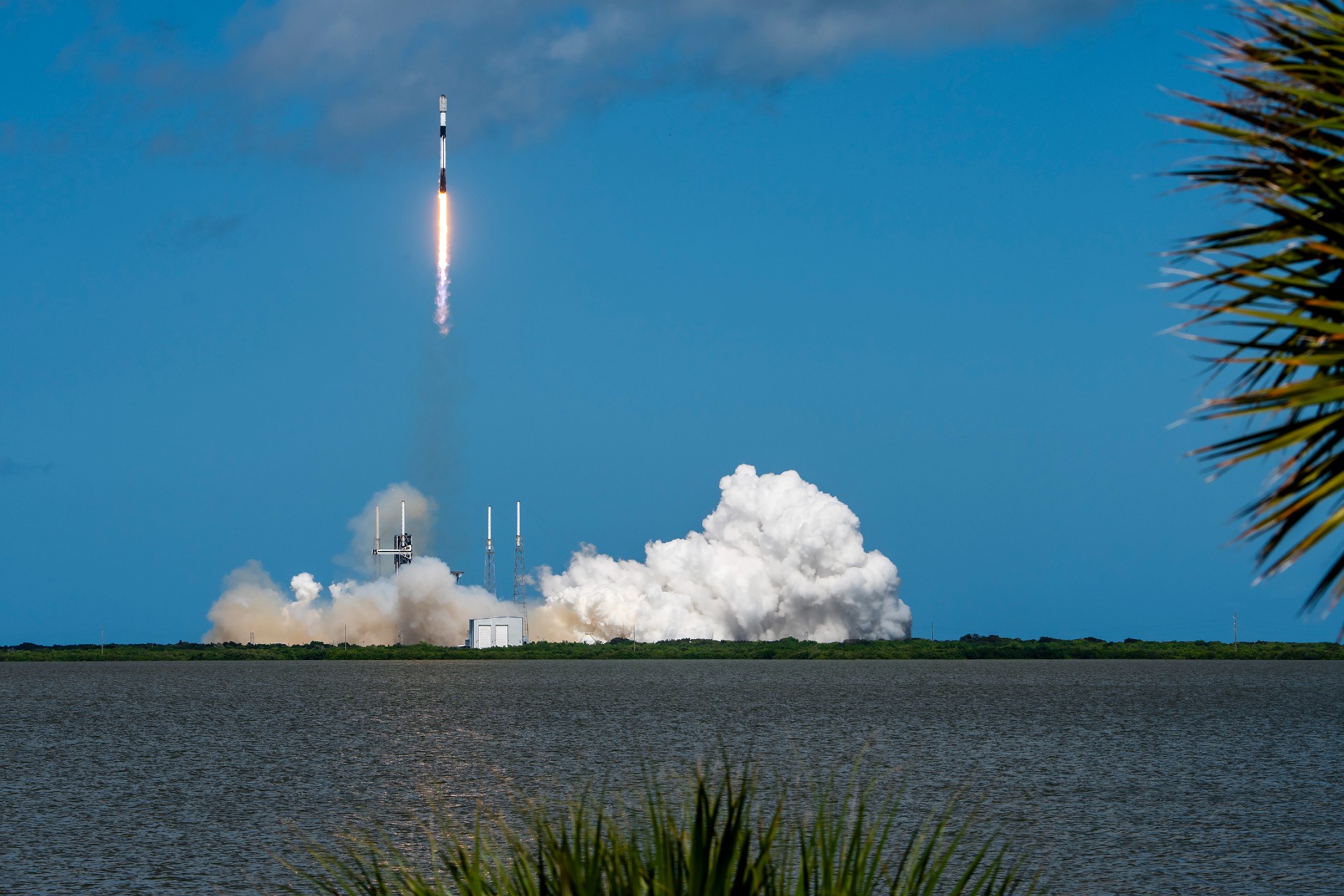
SpaceX is looking to start launching its next-generation Starlink V2 satellites in mid-2027 using Starship.
The update was shared by SpaceX President Gwynne Shotwell and Starlink Vice President Mike Nicolls during remarks at Mobile World Congress (MWC) in Barcelona, Spain.
“With Starship, we’ll be able to deploy the constellation very quickly,” Nicolls stated. “Our goal is to deploy a constellation capable of providing global and contiguous coverage within six months, and that’s roughly 1,200 satellites.”
Nicolls added that once Starship is operational, it will be capable of launching approximately 50 of the larger, more powerful Starlink satellites at a time, as noted in a Bloomberg News report.
The initial deployment of roughly 1,200 next-generation satellites is intended to establish global and contiguous coverage. After that phase, SpaceX plans to continue expanding the system to reach “truly global coverage, including the polar regions,” Nicolls said.
Currently, all Starlink satellites are launched on SpaceX’s Falcon 9 rocket. The next-generation fleet will rely on Starship, which remains in development following a series of test flights in 2025. SpaceX is targeting its next Starship test flight, featuring an upgraded version of the rocket, as soon as this month.
Starlink is currently the largest satellite network in orbit, with nearly 10,000 satellites deployed. Bloomberg Intelligence estimates the business could generate approximately $9 billion in revenue for SpaceX in 2026.
Nicolls also confirmed that SpaceX is rebranding its direct-to-cell service as Starlink Mobile.
The service currently operates with 650 satellites capable of connecting directly to smartphones and has approximately 10 million monthly active users. SpaceX expects that figure to exceed 25 million monthly active users by the end of 2026.
Elon Musk
Elon Musk’s xAI and X to pay off $17.5B debt in full: report
The update was shared initially in a report from Bloomberg News, which cited people reportedly familiar with the matter.
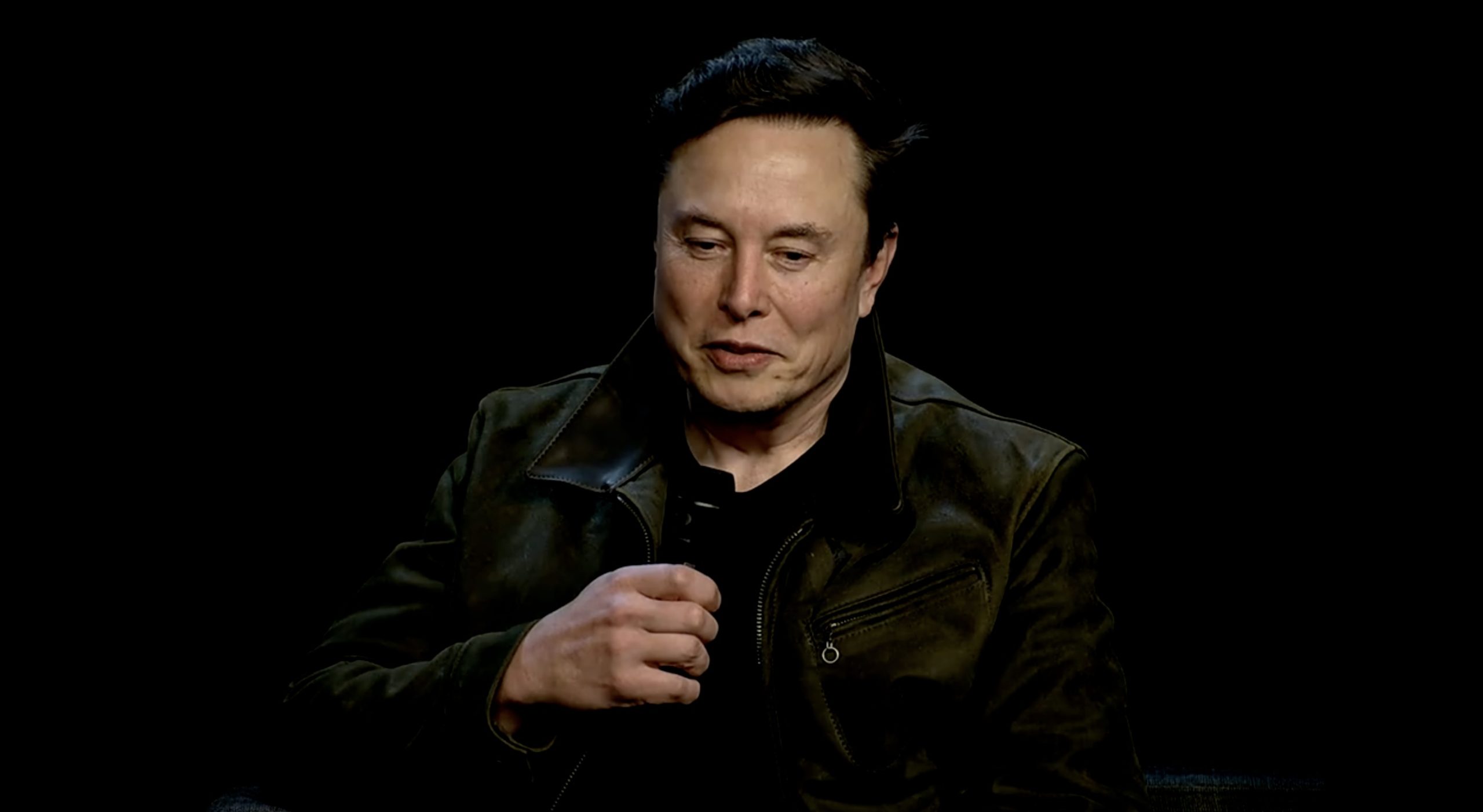
Elon Musk’s social platform X and artificial intelligence startup xAI are reportedly preparing to repay approximately $17.5 billion in outstanding debt in full.
The update was shared initially in a report from Bloomberg News, which cited people reportedly familiar with the matter.
Morgan Stanley, which arranged the debt financing for both companies, has reportedly informed existing lenders that X and xAI plan to pay back the full amount of the $17.5 billion debt. Bloomberg’s sources did not disclose where the capital for the repayment would be coming from.
X, formerly known as Twitter, assumed roughly $12.5 billion in debt during Musk’s acquisition of the company. xAI separately borrowed about $5 billion through bonds and loans last June. The two firms merged last year under xAI Holdings.
Bloomberg noted that portions of the debt are relatively recent and may carry early repayment penalties. xAI’s $3 billion in high-yield bonds are expected to be redeemed at 117 cents on the dollar, reflecting a premium since the debt was expected to stay outstanding for at least two years.
X has been servicing tens of millions of dollars in monthly debt payments, while xAI has reportedly been burning approximately $1 billion in cash per month as it invests heavily in data centers, chips, and AI talent. That being said, xAI also concluded a funding round in January, where it raised $20 billion of new equity.
The repayment plans come as Musk consolidates several of his businesses. SpaceX recently acquired xAI, making it a subsidiary as the company explores plans for space-based data centers. The combined entity has been valued at approximately $1.25 trillion.
Bloomberg previously reported that SpaceX is targeting a confidential IPO filing as soon as this month, potentially positioning the private space firm for a public listing later this year. Representatives for Morgan Stanley declined to comment, and X and xAI did not immediately respond to requests for comment.
News
Tesla Giga Berlin head calls out Handelsblatt’s claimed 2025 production figures
Andre Thierig, Senior Director of Manufacturing at Giga Berlin, published a detailed post on LinkedIn challenging several points made in the publication’s coverage of the Grünheide facility.
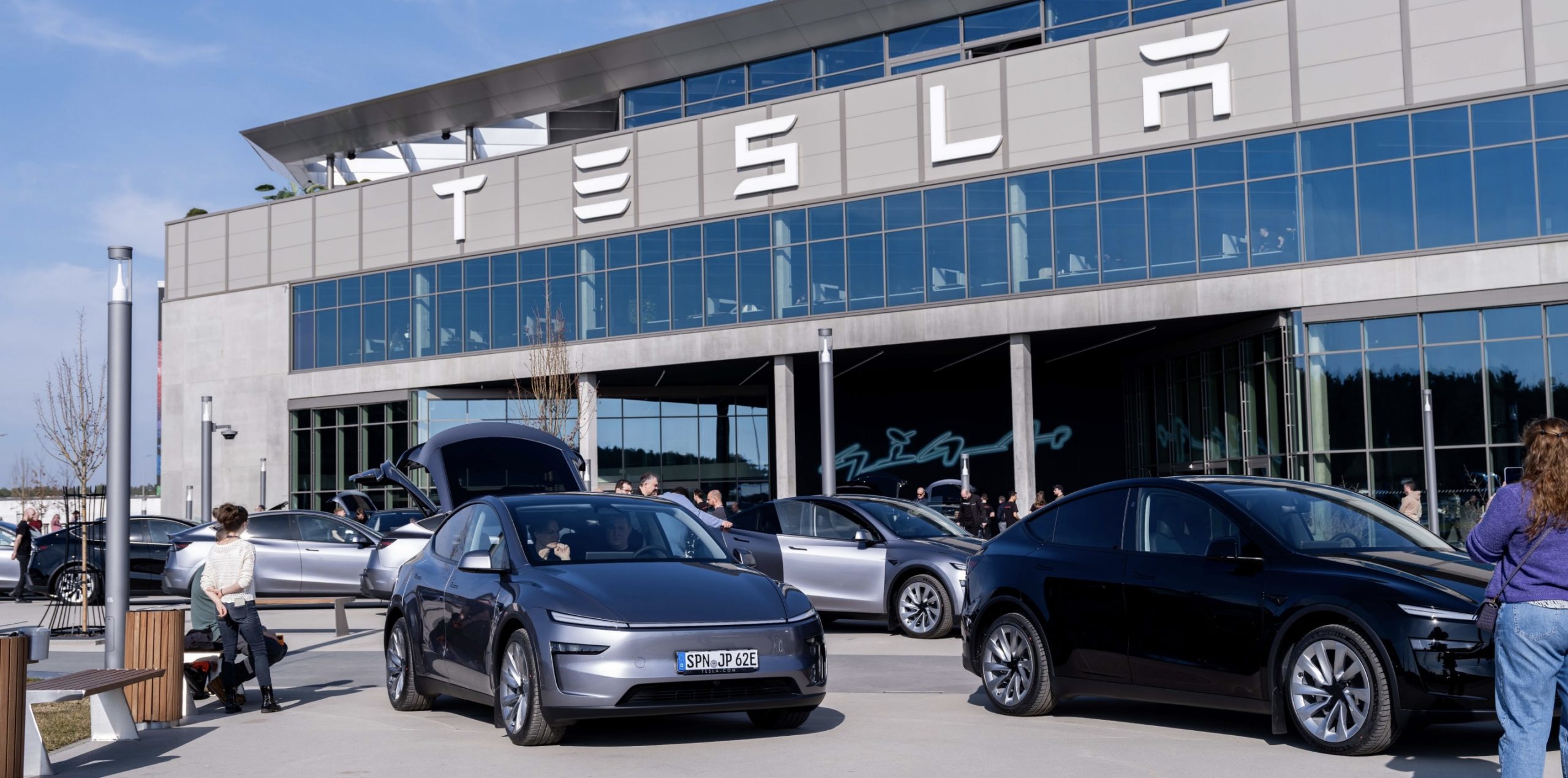
Tesla Gigafactory Berlin’s plant manager has publicly pushed back against recent reporting by German business publication Handelsblatt, which cited reportedly erroneous data about the factory’s production figures and financial performance.
Andre Thierig, Senior Director of Manufacturing at Giga Berlin, published a detailed post on LinkedIn challenging several points made in the publication’s coverage of the Grünheide facility.
In his LinkedIn post, Thierig called out Handelsblatt’s claim that 149,000 Model Y vehicles were produced at Giga Berlin in 2025. He noted that “the article is simply filled from front to back with false information and claims!
“I have to set the record straight here! In the last article about Tesla in Grünheide, the Handelsblatt speaks e.g. of 149,000 Model Ys built in 2025. WRONG!
“In 2025, we again produced over 200,000 vehicles. And this despite the fact that we stopped production in Q1 for the changeover to the new Model Y and then ramped it up again to 5,000 units per week over several weeks,” Thierig wrote.
He added that production increased each quarter in 2025 compared to the prior quarter and stated that more than 700,000 Model Y units have been produced at Grünheide since manufacturing began in 2022. For the first quarter of 2026, he stated that the factory is planning another production increase compared to the fourth quarter of 2025.
Thierig also questioned Handelsblatt’s reported 0.74% profit margin, writing that how the publication calculated the figure “remains reserved for their secret ‘calculation skills.’”
Beyond production data, Thierig highlighted Tesla’s broader footprint in Germany, stating that the company has invested more than €5 billion in Grünheide since 2020 and created nearly 11,000 permanent, above-tariff jobs. He added that Tesla is currently investing nearly €100 million into battery cell production at the site, which is expected to generate several hundred additional positions.
In a follow-up comment, Thierig noted that he did communicate with the publication’s editor-in-chief in an effort to “start fresh,” but he was informed that Handelsblatt’s current approach works just fine.
“Last year, I spoke to a representative of the Handelsblatt editor-in-chief and suggested that we “start anew” again. Handelsblatt turned down this offer on the grounds that their current approach works well for them,” Thierig noted.
Sönke Iwersen, Head of Investigative Research at Handelsblatt, responded to Thierig’s post, stating that the newspaper’s figures were based on Tesla’s own annual financial statements for the Grünheide entity.
He cited reported 2024 revenue of €7.68 billion, operating profit of €156.8 million, and net income after taxes of €55.6 million. Iwersen also referenced prior public comments from Elon Musk about Cybertruck demand, noting the gap between reported pre-orders and subsequent annual sales figures.
He also stated that the works council election eligibility figures Giga Berlin had dropped to 10,703 employees today from 12,415 two years ago.
“As far as production figures are concerned, these are figures from the data service provider Inovev. This is also stated in the article. Please compare this with Elon Musk’s information on demand for the Cybertruck. According to Musk, there were one million pre-orders. In the first year, 39,000 units were sold, in the second year 20,000. How can this be explained? With a million pre-orders?
“You yourself have repeatedly pointed out in recent months that no jobs would be cut in Grünheide because Tesla is different from the competition. Now a new works council is being elected in Grünheide. 10,703 people are eligible to vote. Two years ago, 12,415 people were eligible to vote. So there were exactly 1712 fewer from 2024 to 2026,” Iwersen wrote.








